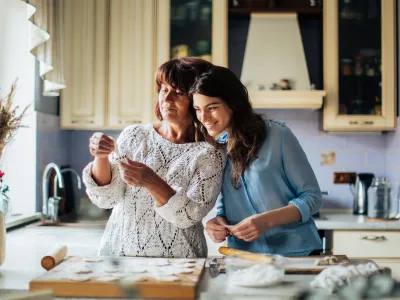
The Way I See It: Life After Lockdown
Include this article in your Skills Builder Journal. It could help you develop... ![]()
![]()
When the country went into lockdown, no one was really sure how long it would last. Several months later, things start to feel like they’re easing, but we’ve also become very aware that life will be very different to what we once knew. But will it be different for the better or for the worse? Check out what NCS Grads Jasmine and Sanjana have to say…
Jasmine: Life after lockdown won’t improve for the better
The global coronavirus pandemic has torn apart families while loosely stitching communities together as we all united against a common enemy. Now, for some of us, the battle is reaching its end - but it has left a lasting impact that will be felt for years and years to come.
To truly reflect on what life will look like, we must consider all the social issues that the pandemic might cause.
What will life look like six months from now, I ask myself? Will we be penniless? A recession is on the horizon, which could snap the country in half once again. Further austerity will be a bitter pill to swallow, especially as it will impact the low-income jobs that we have so relied on during this time. What can we expect from this, and how fatal would this be? Will low pay and high taxes be the new normal?
Will there be an expectation for health services to be solely funded by pensioners walking laps? Will we be overworked and underpaid as businesses try to bounce back from months of unprecedented closure? How many jobs will be lost from companies that just can’t find their feet again?
Has our time spent in lockdown made us more reclusive? Will we retreat indoors once the novelty of the opening pubs has worn off? Will we continue to not see our friends or family regularly?
What about in a couple of years time? Will we even recognize our own country? The planet? Will we stampede outside without a care in the world, flying everywhere because we can, selfish in our newfound freedom?
Sure, we stood united at times, applauding for the NHS, but how long did that last, really? In the grand scheme of things, ten weeks is not very long. How do we continue to keep momentum, charity and good spirits going in a low-attention society?
Nobody can say for sure what life might be like and I do hope I’m wrong. It is my sincerest hope that no matter what happens, this sense of community never leaves us; may we stay forever humbled, and grateful for the small and charitable things we were doing during the outbreak.
Sanjana: We can improve life after lockdown
This pandemic has caused most of our lives to stop and has given us the time to recognise those who never stand still: our key workers. From NHS workers who have been working day in and day out ensuring the good health of our loved ones, to transport workers who allow us to make essential journeys, to postal workers who bear the brunt of our lockdown shopping sprees, it has been made absolutely clear that our country wouldn't work without these professions.
The efforts of our key workers have been invaluable to our livelihoods and their help will not be forgotten. According to a YouGov poll, as a result of this nationwide appreciation, a third of key workers think their organisations will change for the better.
Adding to this sentiment of gratitude, we have come to appreciate the value of our local communities. Though social media has been my lifesaver during lockdown by providing me with innovative ways to keep in touch with and support my friends and family, I think we have all acknowledged that a Zoom call isn’t the same as popping over for a cuppa.
During this pandemic, even the act of waving to my neighbour across the road during ‘clap for carers’ has given me a boost and has reminded me that ultimately, we are social creatures. Indeed, The Telegraph has reported that ‘more than two thirds thought people are doing more to help others since the outbreak.’ We might be in a growing digital age, but I think this experience will encourage us to reach out to communities again and feel the power and strength of in-person companionship.
Lastly, this virus has not discriminated by country. It is a global pandemic. And it has forced all of us in the UK to face a debilitating crisis, together. The impact of isolation, helplessness, uncertainty and worry will not leave us quickly, and our memory of this experience will last for years.
However, I believe we can channel this experience into empathy for others and use it to sharpen our awareness of the refugee and homelessness crises. Extreme isolation and fear are felt disproportionately by victims of these crises and as a society we have seen how damaging this can be to ourselves. This is bound to spur our efforts to resolve these pressing issues.
After a period of unprecedented change, It may be tempting to settle back into our old conventional ways but after seeing how powerful we can be as a collective, It will be much harder to ignore that we can harness this strength to make society more sustainable.
Head back to the hub for more ways to be epic, live life, do good and go party.




